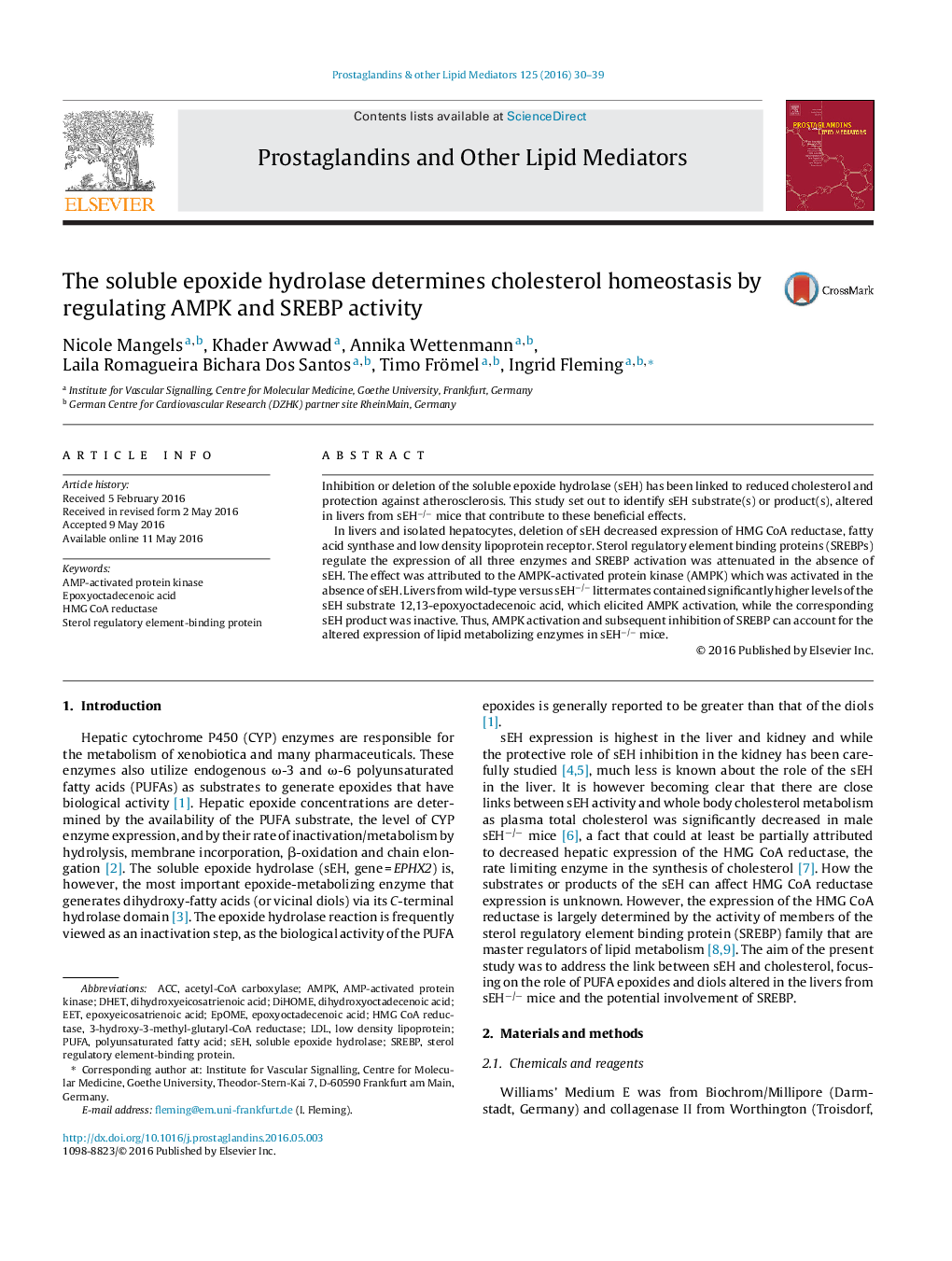| Article ID | Journal | Published Year | Pages | File Type |
|---|---|---|---|---|
| 5515941 | Prostaglandins & Other Lipid Mediators | 2016 | 10 Pages |
â¢Genetic deletion of the soluble epoxide hydrolase (sEH) decreases hepatic HMG CoA reductase fatty acid synthase and LDL receptor expression.â¢AMP-activated protein kinase activity increased while SREBP activation decreased in sEH-deficient hepatocytes.â¢Downregulation of AMPK increased SERBP1 and hepatic enzyme expression.â¢Levels of 12,13-epoxyoctadecenoic acid (EpOME) were higher in livers from sEHâ/â animals.â¢12,13-EpOME activated AMPK in hepatocytes to decrease HMG CoA reductase expression.
Inhibition or deletion of the soluble epoxide hydrolase (sEH) has been linked to reduced cholesterol and protection against atherosclerosis. This study set out to identify sEH substrate(s) or product(s), altered in livers from sEHâ/â mice that contribute to these beneficial effects.In livers and isolated hepatocytes, deletion of sEH decreased expression of HMG CoA reductase, fatty acid synthase and low density lipoprotein receptor. Sterol regulatory element binding proteins (SREBPs) regulate the expression of all three enzymes and SREBP activation was attenuated in the absence of sEH. The effect was attributed to the AMPK-activated protein kinase (AMPK) which was activated in the absence of sEH. Livers from wild-type versus sEHâ/â littermates contained significantly higher levels of the sEH substrate 12,13-epoxyoctadecenoic acid, which elicited AMPK activation, while the corresponding sEH product was inactive. Thus, AMPK activation and subsequent inhibition of SREBP can account for the altered expression of lipid metabolizing enzymes in sEHâ/â mice.
Graphical abstractDownload high-res image (116KB)Download full-size image
